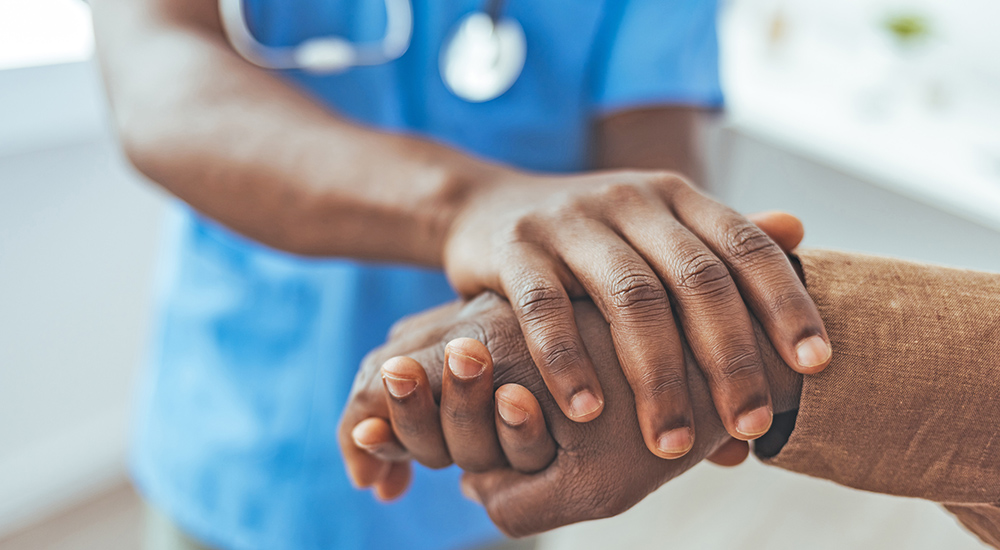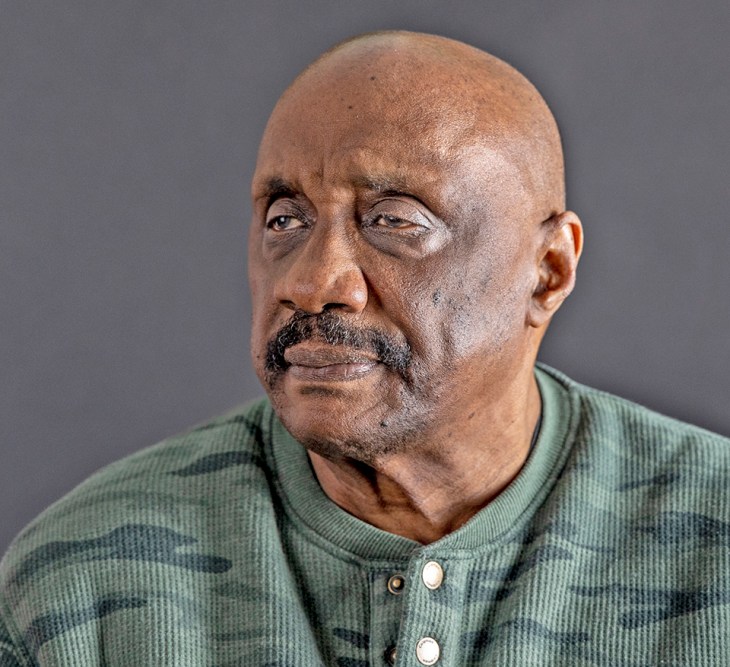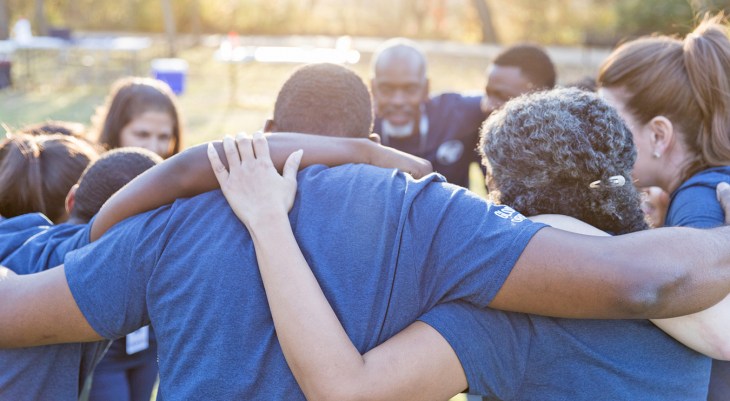Michael Roland joined the Navy in 1969 when he was 17 years old. Six months later, he was raped outside his base’s enlisted club. He opted for silence, not telling anyone for 51 years.
“I went into a cocoon. It became so overwhelming that I ran, and I did that my whole adult life,” Roland said.
Roland is not alone. A 2016 VA study of over 20,000 post-9/11 Veterans and service members found that 41.5 percent of women and 4 percent of men experienced some form of sexual trauma while serving. One in three women and one in 50 men have reported military sexual trauma during VA health care screenings.
The assault
Roland was excited to work as an aviation mechanic at a Naval Air Station outside Memphis, Tennessee. The teenager quickly realized he was his unit’s youngest and lowest-ranked sailor.
He considered himself naïve when he joined the Navy. The higher ranking sailors in his unit invited him to the NCO club and the 17-year-old felt obligated to go. “They said they were going to initiate me. I never drank and after about three drinks, I passed out. When I woke up, I was in the back alley of the club,” he said. His pants were at his knees.
“I was angry. I was ashamed. I didn’t want to tell my commanding officer or any of the guys in my squadron. I just had to deal with that and I didn’t know what to do,” he said.
A 2016 Pentagon report estimated over 10,000 men are sexually assaulted in the Armed Services annually. Men comprise over 80 percent of the active-duty military and account for the largest number of estimated military sexual assaults. According to the Pentagon’s assessment, the Department of Defense received only one report from a military male for every four military women.
“It’s underreported, not just men but also women,” said Dr. Sulani Perera, military sexual trauma coordinator at Edward Hines Jr. VA. “What patients tell us is that there is so much shame that they won’t report. And there is this belief that reporting won’t do anything.”
In the past 12 months, more than 2,000 Veterans, including over 850 men, have reported experiencing military sexual trauma during Hines VA’s outpatient screenings, which are required at all VA medical facilities.
Trying to move on
“When I got discharged, I thought I had alleviated the problem, but I took it with me. I was a very outgoing person before I went into the service, but I got very much alone, disconnected from people and angry,” he added.
Roland started drinking and soon was using marijuana, cocaine and heroin.
“Back then, mental health was not something you dealt with. It was kind of taboo. When the nightmares came and I was overwhelmed with emotions, I started drinking and doing drugs.”
This is common, Perera said.
“We see many Veterans who’ve experienced military sexual trauma try to self-medicate with substance use,” said Perera. “The problem is you might start having a drink to take the edge off, but what happens is that it’s not going to be enough and over time the coping mechanism becomes a problem in itself.”
Hitting rock bottom
Roland was homeless from 2004 until 2007, when a former Navy friend found him on the street during a cold Michigan day. The friend convinced him to seek help at the Dingell VA in Detroit, where Roland spent 11 days in intensive care.
“Once I got stabilized, an inpatient social worker offered me a six-month inpatient program. I began to put the pieces of the life back together, building a new foundation and I started my recovery,” Roland said.
Roland entered the VA Domiciliary Care Program and, while in the program, he was diagnosed with uncontrolled diabetes and advanced glaucoma from drug and alcohol abuse. The doctor said he would eventually go blind.
He traveled to Hines VA’s Blind Rehabilitation Center to begin learning how to continue an active life as his vision rapidly declined. “I was devastated, but the program gave me hope. The people there became family and really taught me how to live a quality life, even when visually impaired,” he said.
A new beginning
Hines VA social workers helped him get an apartment. He became legally blind and for 12 years would take the bus to Hines VA, first as a volunteer and then eventually to work as a lead peer support specialist at the hospital.
“Mike’s ability to share his past experiences, both his challenges and his resiliency, serves to connect with Veterans who are struggling, inspire hope for recovery and offers a way to connect with the humaneness in us all,” said Dr. Megan Mayberry, Hines VA peer support supervisor and local recovery coordinator.
Roland now holds hospital bedside interventions for Veterans who come to the hospital with drug dependency complications.
Facing the past
On Father’s Day 2022, Roland told his children about his experiences. “They were just tearful. They hugged me. My therapy has encouraged me that, the more I share it, the less intensity it has over my life,” he said.
Now 71, Roland hopes his past can help others’ futures: “I want people to know that as long as you keep hope alive, anything is possible.”
All VA medical providers are trained in helping Veterans who have experienced Military Sexual Trauma. Additional resources are available at mentalhealth.va.gov and with VA’s free Beyond MST app.
Topics in this story
Link Disclaimer
This page includes links to other websites outside our control and jurisdiction. VA is not responsible for the privacy practices or the content of non-VA Web sites. We encourage you to review the privacy policy or terms and conditions of those sites to fully understand what information is collected and how it is used.
More Stories
Bob Jesse Award celebrates the achievements of a VA employee and a team or department that exemplifies innovative practices within VA.
The Medical Foster Home program offers Veterans an alternative to nursing homes.
Watch the Under Secretary for Health and a panel of experts discuss VA Health Connect tele-emergency care.









This story is so similar to mine. Only the names were different. Even my age at the time and my age currently are the same. My wife knows where I would be if it were not for my councilors. I, too, want to eventually help other kids, who become men at the hands of an unkind world.
as a fellow vet i was stationed at blyheville afb in arkansas bavk in the 70s. we took rides to millington naval station in tenn. god bless!
I’ll proud of all Veterans and especially you. God knows what happens to us. I a Vietnam Vet. and my experience as a kid only lasted only a year and never forgotten as long as I live. Nothing like you experienced. As a veteran I proud of you and maybe hate what men who think with their d-. You can back from this and that makes super star. I wish I knew you and I would help if I could. You are my Hero like all the Veterans who gave lives for our country. God bless you. I wish I was as strong as you.
I would like to volunteer. How do I pursue that goal?
Thank you for considering this inquiry.
Andy H!